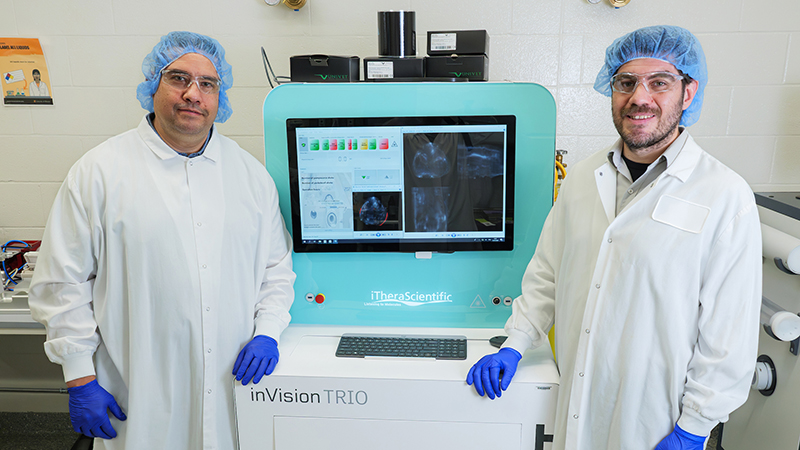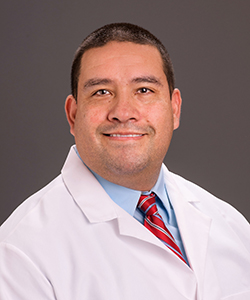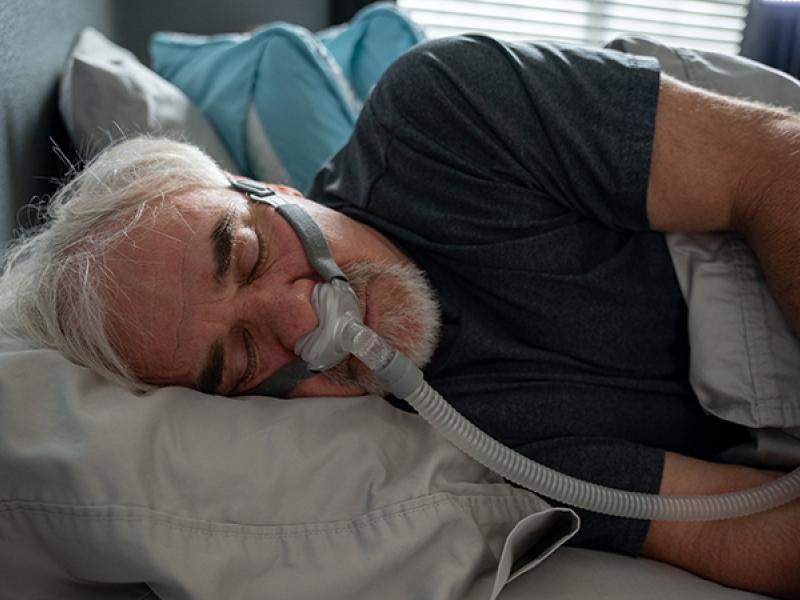
A researcher at the University of Missouri School of Medicine has been awarded $2.2 million from the National Institute of Biomedical Imaging and Bioengineering, part of the National Institutes of Health, to develop a new method for imaging inflammation disorders, such as inflammatory bowel disease (IBD), autoimmune diseases and arthritis.

Inflammation is difficult to image with current radiological techniques, which involve exposing the patient to radiation, poor image quality, high costs and invasiveness. Now Jorge Gomez-Gutierrez, PhD, an associate professor of pediatrics is leading a research team at the Roy Blunt NextGen Precision Health building developing new methods to monitor the progression of inflammatory disorders with the latest imaging technologies.
His team is creating the first probiotic bacterial-based contrast agent for use with multispectral optoacoustic tomography (MSOT). The all-natural contrast agent includes lactic acid bacteria that generate a glowing blue color on MSOT imaging. MSOT imaging technology produces high-resolution images of biological tissue without any radiation exposure. Instead of radiation, MSOT uses light and sounds to produce highly detailed images. An exam using MSOT resembles receiving an ultrasound.
“Because this non-invasive technique does not require exposure to radiation it is possible to more regularly obtain imaging from patients to monitor disease progression and response to therapy,” said Gomez-Gutierrez. “Unlike the synthetic contrast agents currently available, the natural agent we are developing is less expensive to produce and doesn’t offer the downsides of the synthetic agents, such as aggravating a patient’s IBD or colitis.”
This project represents one of the first developments of a bacterial-based optoacoustic detectable contrast agent for diagnosing and monitoring inflammation. The funding for the project runs through February 2028.

Highlighting the promise of personalized health care and the impact of large-scale interdisciplinary collaboration, the NextGen Precision Health initiative is bringing together innovators from across the University of Missouri and the UM System’s three other research universities in pursuit of life-changing precision health advancements. It’s a collaborative effort to leverage the research strengths of Mizzou toward a better future for the health of Missourians and beyond. The Roy Blunt NextGen Precision Health building at MU anchors the overall initiative and expands collaboration between researchers, clinicians and industry partners in the state-of-the-art research facility.





